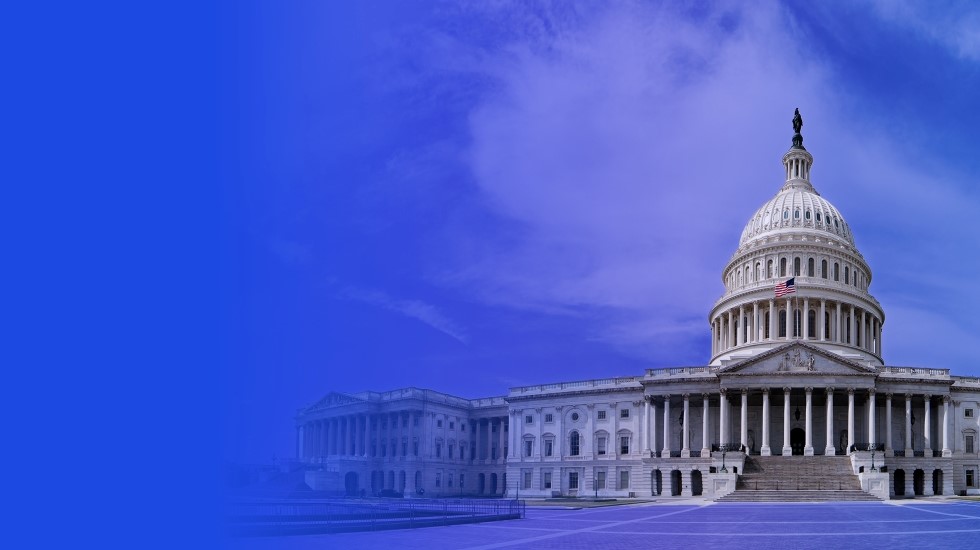Transcript continued
John: Thanks, Manan. What are the big major hurdles and things to consider in this act and what are the key provisions that employers should be aware of?
Manan: Great question. Most of my clients are asking about the overtime provisions as well as the tip provisions. So why don't we start with the overtime provisions? The OB 3 Act basically provided a deduction for employees. Is that receive qualified overtime from their employers and we'll talk about what that qualified overtime means in a little bit and get into some of those details, but the impact to the individual potentially could be an above the line deduction of $12,500 if you're filing single. And up to $25,000 if you're married filing jointly, and there is a phase out starting with modified adjusted gross income of $150,000 and $300,000 for married filing jointly. So with that, those provisions have really caused some angst with our clients in trying to understand how they are to approach these provisions, and they're getting a lot of questions from their employees as well.
John: Thanks Manan. This is a pretty substantial change. Can you maybe talk through how this is going to affect employers and what they need to consider as far as reporting goes?
Manan: Absolutely, absolutely. So one of the key provisions is the fact that there's a definition for quote unquote qualified overtime, and qualified overtime is compensation that is paid in excess of the regular rate of pay in compliance with the Fair Labor Services Act. So what that means is it's traditionally what you and I think about as overtime. It's the time and a half. The qualified overtime piece is just that halftime premium. So from an employer perspective, the employers are going to be required to report the qualified overtime on the employee's W-2, and on top of that, these provisions are retroactive, meaning that there will be a reporting requirement for 2025, and these provisions are limited, meaning that they are set to expire at the end of calendar year 2028 if it's not extended. So these types of complexities are what our clients are asking us about, and we understand that the IRS is looking to issue additional guidance, but in anticipation of that, most of our clients are looking at their systems to figure out how to comply with the reporting requirements here, especially taking into account the fact that there are some states and some unions that have overtime requirements. That are more than the time and a half. A great example is California. Mindy, I know you're based in California and you're probably dealing with a lot of questions from our California employers about this. Can you give us a little bit of detail around how this provision could impact?
Mindy: Yeah, definitely, Manan. The biggest issue that we're seeing is exactly what you said. The premium portion is all that is expected to be reported. So if a company has double time, for example, that they're reporting due to state rules like California's, you're only supposed to report that 0.5 percent and not the greater amount that could be subject to the state rules. So with that, is your payroll system set up to only capture the premium portion? And if it is not, and I'm finding quite a few systems that do not grab that, they're just grabbing the total overtime. If that is not a separate earnings code or earnings bucket within your system when you're calculating your overtime, you're going to have problems reporting this number. So there's a lot of scrambling going on right now. And again, as we see all the time with payroll changes like this that are retroactive, the IRS is scrambling as well right now trying to get out some guidance on how they expect this to be reported. The last we heard is that on October 2nd guidance is going to be provided around both the overtime and the tips reporting requirement to be able to tell employers where this is supposed to be reported. I've already heard from multiple third party vendors say that they are struggling with this. This is a quick turnaround for them coming out mid-year that they're supposed to have this in place by the end of the year. So it's going to be, as usual, a rush towards the year end to make sure that, one: can your payroll system report this?; two: can you gather the information anything other than manually to input this information? And, three: employee communication is going to be huge. This truly is an employee issue. This is not a tax issue. This is nothing for employers other than a reporting responsibility. But the first stop and always the first stop for an employee when they see something like this is going to be their payroll managers and their companies. And what information are they going to have available this October 2nd guidance that the IRS is promising, number one, that's a promise, so we don't know are they actually going to be able to meet the October 2nd date. With that, they're supposed to be providing FAQs, and I would assume those FAQs can be turned into some type of employee communication, but we're waiting on that as well.
Manan: When the IRS provides this guidance, are they also planning to provide guidance on the transition rule, because I've been getting a lot of questions, especially for 2025, because in the overtime provisions, the reporting requirement, there is a mention of a transition rule to approximate the accounting requirements for the qualified overtime. Have you heard that as well?
Mindy: Yeah, I have. I was on a call with the IRS previous to this, the OB 3 getting passed, and they were talking with payroll services and industry leaders to hone in on what they need to do on their end, and this transition rule came up. They have asked for industry input into what their feedback on October 2nd is going to be and what their FAQs are going to be. There are several questions posed that are going over to the IRS this coming week for them to incorporate into this document. So transition rules are definitely going to be addressed as well as the reporting requirements. And then what happens if companies cannot meet this obligation by the end of the year? You know, is a statement to the employees sufficient and what are we going to do? All of this should be incorporated, but again, can the IRS actually turn that around by October 2nd is the big unknown at this point.
John: Thanks guys. I want to just switch gears a little bit and talk about another item within the bill, which relates to 1099 filing. Mindy, this really pertains to our friends in the accounts payable department. What about the changes to 1099 filings do we need to start getting ready for?
Mindy: This is a big one for anybody in the accounts payable area. So if you definitely deal with 1099s, you're going to want to make sure, or if you work closely with your AP counterparts, you're going to want to make sure that they're aware that the thresholds have changed, and this is greatly celebrated throughout the 1099 world. We've reverted to pre 2021 threshold numbers for the 1099K. So what that means is the IRS had been attempting to lower the reporting requirements and then they turned around and now they've gone back to the previous requirements which were $20,000 and over 200 transactions. So that has been appreciated by anybody dealing with 1099s. The other beneficial reporting, and we'll see if there's going to be a potential backlash on this one. 1099 miscellaneous and 1099 NECs, the threshold is being increased to $2000. This is starting in 2026, and it's going to be inflation adjusted going forward, which is a pain because now we're going to have to know what the different dollar amounts are every year. It's been $600 forever, but we're now going to go to $2000 starting in 2026.
John: Thanks for all that information. I also want to make sure we discuss some of the implications on tip reporting that are going to be part of this bill.
Manan: Yeah, I think that's going to be important for quite a few of our clients and employers as well. From the no tax on tips provisions in OB 3. It applies to qualified tips. They define qualified tips as cash tips, including tips charged to credit cards or debit cards, that were common in an occupation before 2025. These tips would not be considered qualified tips unless, and this is the real kicker, they were charged to credit cards or debit cards. The amount paid is voluntary without consequence of nonpayment and is not subject to negotiation and is determined by the payor. So when I first read this provision, I thought about the dinner that I took my family to the night before and the 20% gratuity that was automatically added to. My check based on the way this is written, it appears that the mandatory tip that I had to give would not be a qualified tip pursuant to OB 3. However, if it's completely subject to the payor and I could decide, hey, I want to tip 15%, 20%, 25%, then those would be considered qualified tips. The impact to the individual would be another above the line deduction to a maximum of $25,000 with a phase out starting at modified adjusted gross income of $150,000 for single filers and $300,000 for filing jointly. Similar to the overtime provisions, there is going to be a new reporting requirement on the W-2, as well as potentially a 1099 NEC if tips are being reported there to provide the employees with the amounts of qualified tips received for the year. Again, this is also a retroactive change back to the beginning of 2025, so that adds another layer of complexity to this.
Manan: But Mindy, what kind of questions or what are you hearing from your clients in terms of trying to comply with this potentially new reporting requirement?
Mindy: Tip reporting's a nightmare to begin with, right? And it's always been employee driven. And so to Monin's point, these are not going to be those items that are, you know, your 20% banquet tip or whatever that's going to run through. It's the portion that the employee voluntarily reports over to the company. And these are going to be the amounts that the employees can exclude. I don't believe that they're excludable for FICA purposes. This is just going to be excludable for federal income tax. This is on the individual's return. So on and that's correct, right? It's still a FICA taxable event.
Manan: That is 100% correct for qualified tips and the qualified overtime provisions we just discussed. This is just a reporting obligation from an employer perspective. The other payroll taxes do apply to this income, so whether it's FICA taxes, whether it's federal unemployment taxes, state unemployment taxes, state withholding taxes, all of the other taxes will still apply.
Mindy: And this is the underlying problem that employers are going to have with this, because the employees are going to realize that they're able to exclude this income. And so the discussion's been held at the employer level and the IRS is attempting to address this is how do you take care of this going into the future when the employees know that they have income they can exclude from federal income taxation. And so do we have a modified Form W4 because of this, and this is what the IRS is contemplating. The W-4 should be modified so that the employee does not have withholding on these amounts because they're going to be able to exclude it at the end of the year when they file their personal tax return. Employees think this is excluded across the board. So again, employee communication is going to be key around the entire thing is the employees will be able to pull it off of their personal income tax return and not report that income and be able to exclude that, but they think they can exclude it for all purposes, and they're going to be saying, how come I'm being taxed on this? What's happening? And so there's going to be communication issues and again we need to await the W-4 response from the IRS. Are they going to create W-4s to be able to identify the items that are going to be excluded so that those can again flow through payroll and have a particular exclusion so that they don't have withholding on them to remove that from employee taxation to begin with. So a lot is still pending around this, and so we just have to await IRS documentation and guidance from them.
Manan: The other big piece of information on qualified tips that we're waiting for from the IRS is a listing of qualified occupations. As you mentioned before, there's that October 2nd promise, but we'll see what that is. And the goal is not to have companies now try to reclassify certain types of income as tip income just for purposes of this benefit. It really needs to be an occupation that routinely receives gratuities and tips.
John: Thanks Manan and Mindy for walking us through these important changes. It's clear that the One Big Beautiful Bill Act has going to have significant implications for employers across various sectors, and it seems we're going to have to have another podcast once we receive IRS guidance so that we can help clients to operationalize these multitude of changes.
Manan: Absolutely, John. Employers need to stay on top of these changes to ensure compliance and make the most of these new opportunities.
Mindy: Thank you, John. We'll continue to monitor these developments and provide updates as more information becomes available.
John: Thank you for tuning in to this episode of Mobility via podcast. Join us next time for more insights on employment tax and other related topics. Don't forget to subscribe to our podcast for more global mobility insights and updates.






